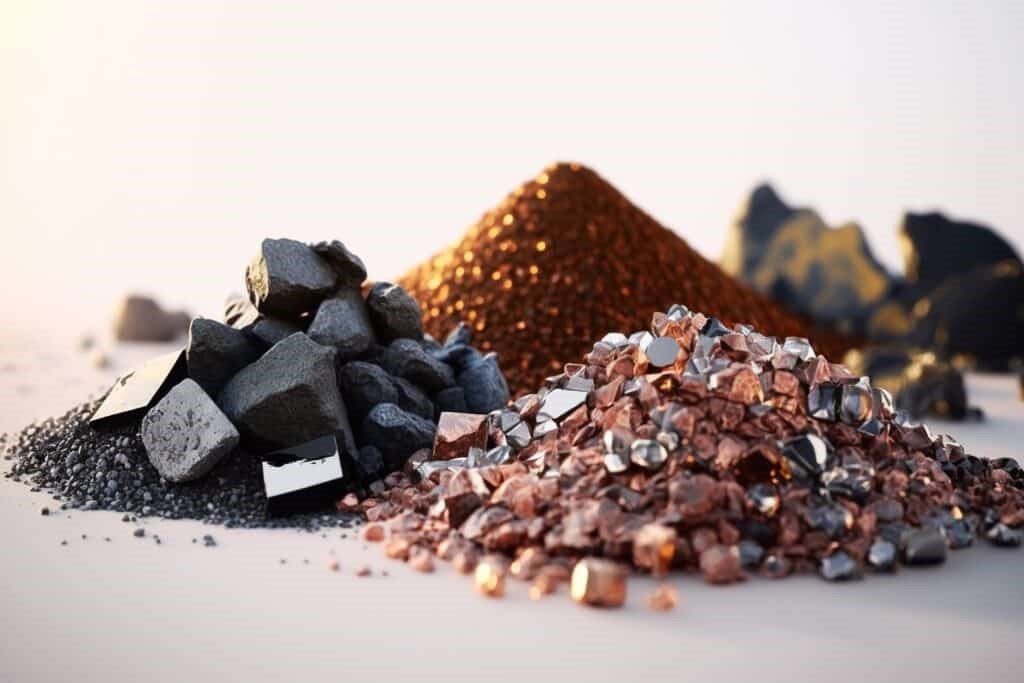

Australia has announced the inclusion of aluminium in the Strategic Materials List to support the global shift towards a net-zero future. The Australian Aluminium Council (AAC) backed this move. With a press release, ABx Group also announced that its subsidiary ALCORE's main production choice, fluorine, has also been added to the list.

The Australian Aluminium Council has appreciated the Government's recognition and stated that aluminium will continue to be an essential commodity in achieving a sustainable and low-carbon future. The recent inclusion of aluminium in the Strategic Materials List has brought Australia in line with its global counterparts, such as Canada, the USA, and Europe. These nations have all identified bauxite, the raw material for aluminium, and aluminium itself as strategic and critical components.
Support from external agencies
It's worth noting that the World Bank and the International Energy Agency also recognise aluminium as a crucial commodity for clean energy technologies, including solar panels, batteries, and electric vehicles. Additionally, it serves as an essential component in the construction of electricity grids and has other widespread strategic usages.
ABx's subsidiary ALCORE receives fantastic news
ABx Group's announcement that fluorine has been added to the Australian Government's Critical Minerals List is essential for a green shift as the company's 83 per cent-owned subsidiary, ALCORE, is working to recover fluorine from aluminium smelting waste to produce hydrogen fluoride. Currently, Australia has no domestic production of fluorine and is entirely reliant on imports.
Views from Industry Experts
The CEO of the Australian Aluminium Council, Marghanita Johnson, was delighted with the Australian Government's wise call to add aluminium to the country's strategic mineral list, recognising the non-ferrous metal's indomitable potential. She asserted: "The Council is pleased that the Australian Government has recognised that Australia's integrated aluminium value chain is important – not only to our domestic needs but also to meet global demand for aluminium."
Johnson expressed her appreciation for the current recognition and encouraged the Government to take a more proactive approach in collaborating with the aluminium sector to shape policies related to resources, climate, energy, industry, environment, and trade. She underlined the benefits of adopting a balanced approach towards reforming environmental approval processes, taking into account both ecological dilemmas and the need to ensure an effortless transition to a net-zero economy.
Johnson went on to elucidate: "As the Australian Government considers the reform of its environmental approvals processes, it has never been more important to achieve the appropriate balance between the need for environmental rigour with timelines needed for the transition to a net zero economy."
"The industry is prepared to play our part, and the Council calls for approvals requirements and timings that reflect the role these Strategic Materials play in helping Australia and the world meet its net-zero ambitions," she concluded.
The diverse aluminium industry, encompassing bauxite mining, alumina refining, aluminium smelting, and downstream manufacturing, has the potential to play a major role in Australia's future economy, national security, and the advancement of superior technologies.
In a recent statement, Johnson emphasised that the industry has the potential to offer valuable employment opportunities to numerous Australians, provided that appropriate policy measures are put in place. Additionally, the industry can effectively meet domestic demands while extending support to international partners, particularly in light of the changing geopolitical climate. To oversee the continued sustainability of the sector, the Council has released a comprehensive framework outlining the necessary policy settings.
If you are interested in learning more about the entire aluminium value chain, please spare a glance at AL Circle's specially formulated report, Global Aluminium Industry Outlook 2023.
Responses








